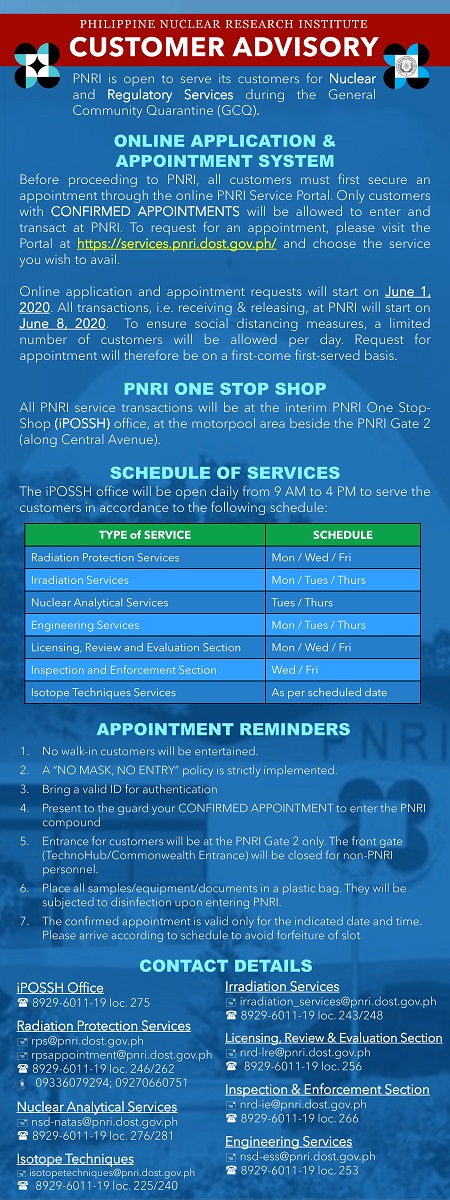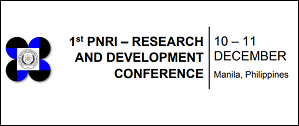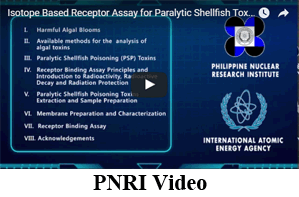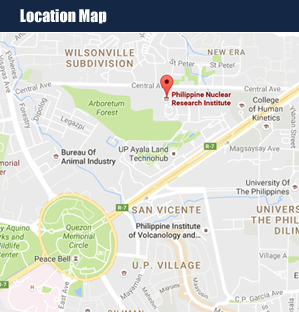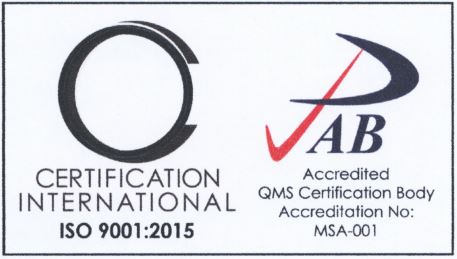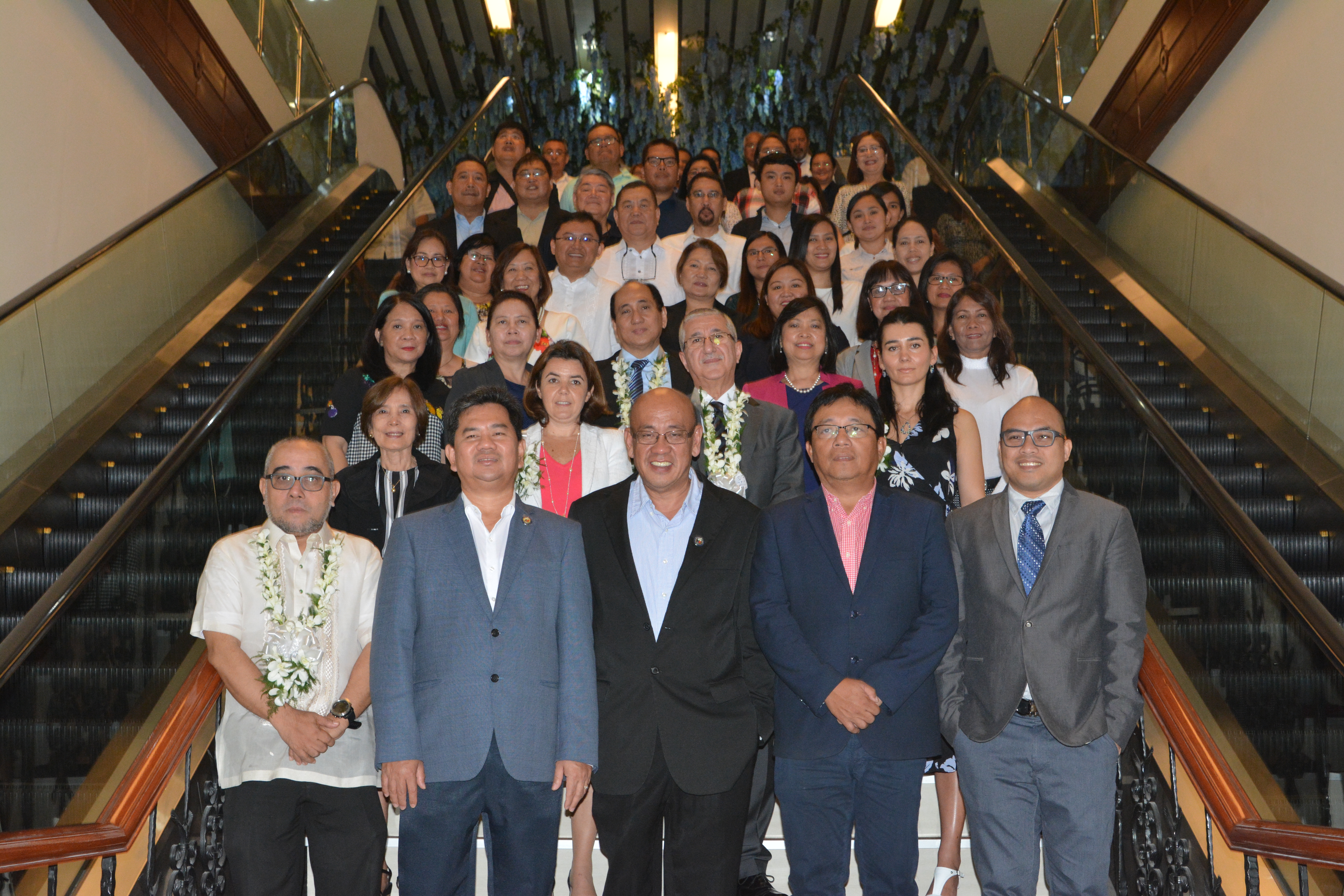PNRI Hosts 1st Coordination Meeting on Strengthening Radiation Safety Infrastructure in Asia and the Pacific
- Details

DOST-PNRI Director Dr. Carlo Arcilla (10th from right) with IAEA experts, representatives from IAEA Member States in the Asia-Pacific region and PNRI officials and staff during the First Coordination Meeting for IAEA Project RAS9089
PNRI Hosts 1st Coordination Meeting on Strengthening Radiation Safety Infrastructure in Asia and the Pacific
Addressing the need for continuous improvement of radiation safety in the Asia-Pacific Region, the Philippines hosted the first coordination meeting for a new Technical Cooperation Project of the International Atomic Energy Agency (IAEA).
Thirty six (36) participants from 19 countries in the region, including regulators and technical staff from the Department of Science and Technology – Philippine Nuclear Research Institute (DOST-PNRI) and Department of Health-Food and Drug Administration-Center for Device Regulation, Radiation Health and Research (DOH-FDA-CDRRHR), met with IAEA project management and technical officers to convene the First Coordination Meeting for the IAEA Project RAS9089 on Strengthening Radiation Safety Infrastructure on April 16 - 20, 2018, Novotel Hotel, Quezon City.
Among the Member States who participated are Bangladesh, Indonesia, Iran, Iraq, Israel, Jordan, Kuwait, Lebanon, Malaysia, Mongolia, Myanmar, Pakistan, Philippines, Qatar, Sri Lanka, Syria, Thailand, United Arab Emirates, and Vietnam.
The project aims to spur each country’s progress in their radiation safety infrastructure, eventually leading to full compliance with the IAEA safety standards.
These efforts cover four (4) thematic safety areas (TSAs): TSA 1 –regulatory infrastructure; TSA 3 – radiation protection and safety of patients; TSA 4- radiation protection of public and environment; and TSA 5- emergency preparedness and response, with the objective to achieve greater than 80% improvement of the indicators as reflected in IAEA Radiation Safety Information System (RASIMS).
Through the regional project on strengthening radiation safety infrastructure, the IAEA Member States will have an important platform to harmonize these efforts. It will also lead to an exchange of technical expertise and experiences between countries, and facilitate collaboration between countries with similar priorities and concerns, with the IAEA providing the necessary technical assistance, through expert missions, workshops, fellowships, and equipment.
By the meeting’s end, the participating Member States have finalized their national project team members, action plans and regional activities to be implemented from 2018 to 2021.
The PNRI serves as the country’s regulatory body for radioactive materials and facilities. Under Republic Act 5027 or the Atomic Energy Regulatory and Liability Act of 1968, no person can use, own, possess or transport nuclear and radioactive materials without a license from the former Philippine Atomic Energy Commission, which later became the PNRI.
The Philippines became a Member State of the IAEA in 1958.
Senators Visit IAEA and European Nuclear Facilities with PNRI Officials
- Details
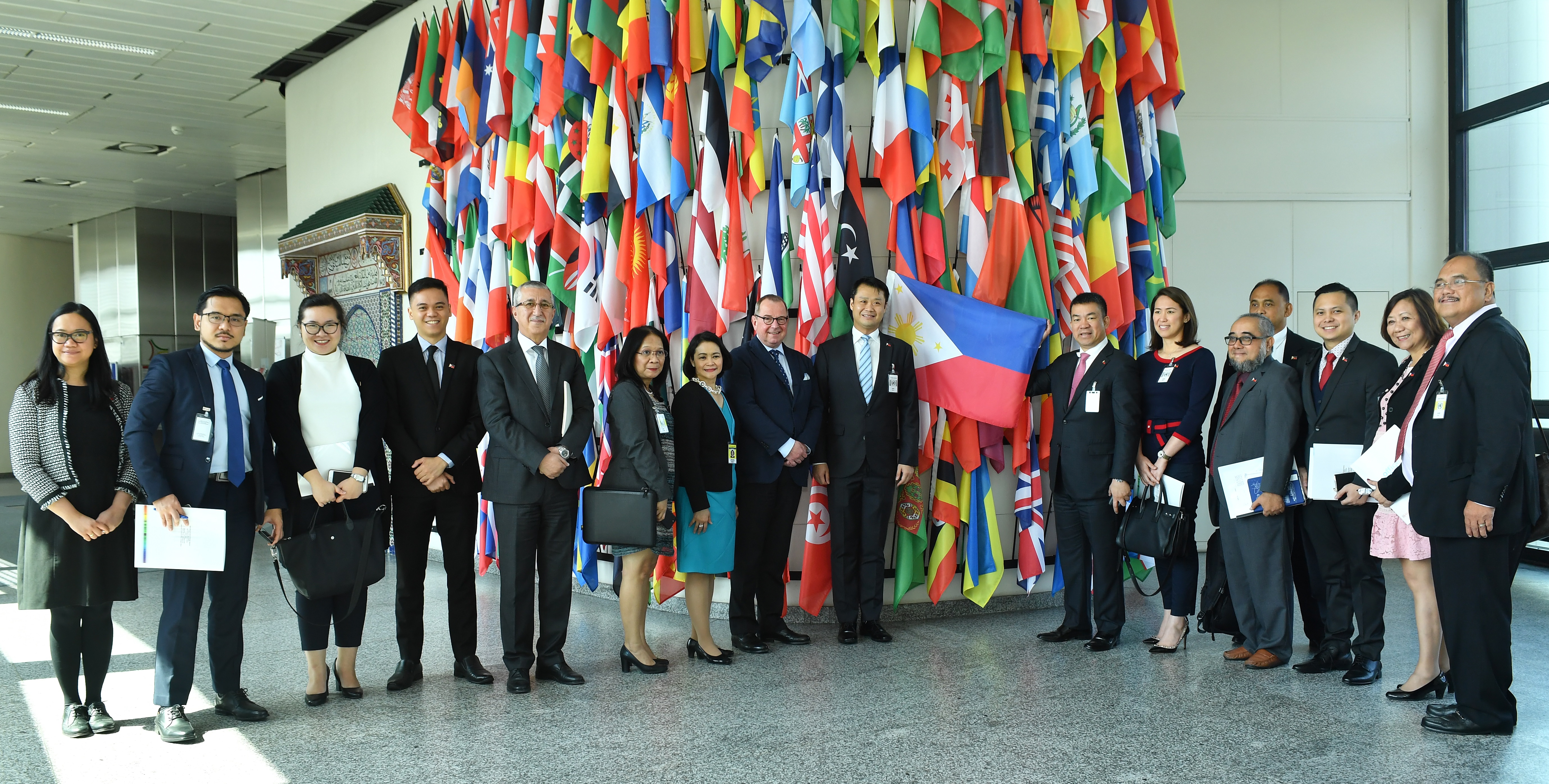
Senate President Aquilino “Koko” Pimentel III, Senate Energy Committee Chairperson Senator Sherwin “Win” Gatchalian (7th and 8th from right), DOE Undersecretary Donato Marcos (extreme right) and PNRI Director Dr. Carlo. Arcilla (5th from right) with PNRI Technology Diffusion Division Chief and National Liaison Officer Ms. Ana Elena Conjares (6th from left) and PNRI Nuclear Regulatory Division Senior Science Research Specialist Ms. Teresita De Jesus (2nd from right) and members of the Philippine delegation at the IAEA headquarters in Vienna, Austria on May 2. (Photo by Dean Calma, IAEA)
Senators Visit IAEA and European Nuclear Facilities with PNRI Officials
Bearing witness to the diverse applications of nuclear science and technology, Senate President Aquilino “Koko” Pimentel III and Senate Energy Committee Chairperson Senator Sherwin “Win” Gatchalian joined officials of the Department of Science and Technology – Philippine Nuclear Research Institute (DOST-PNRI) on a trip across Europe early in May this year to meet with officials of the International Atomic Energy Agency (IAEA) as well as to visit various nuclear science facilities and laboratories.
Speaking during their scientific visit, Senate President Pimentel encouraged the use of nuclear technology “not just to generate electricity, but also for pest control, food & environment protection, plant breeding and genetics, soil and water management, animal protection and health, and dosimetry, or fighting cancer."
The Senate President also looked forward to future collaborations with PNRI in bringing these beneficial applications closer to Filipinos.
"We should not deny the benefits of this technology to Filipinos. I will be working closely with PNRI to see how the Senate can help them improve the quality of life of our countrymen," the Senate President said in a press statement.
Accompanying the senators are Undersecretary Donato Marcos of the Department of Energy (DOE) and PNRI Director Dr. Carlo Arcilla, along with officials and staff from PNRI and the Department of Foreign Affairs (DFA).
Beyond highlighting the benefits of nuclear science, the tour provided the senators with a deeper perspective on crafting a more comprehensive nuclear legislation, which will take into consideration the Philippines’ obligations to nuclear safety and security treaties and conventions, regulatory functions and civil liability for damages, to name a few. A bill on the Comprehensive Nuclear Regulations Act, which is currently filed before both houses of Congress, aims to create an independent nuclear regulatory body, as well as to update and strengthen the country’s nuclear legal and regulatory regime in line with international standards.
To this end, the Philippine delegation first visited the IAEA headquarters in Vienna, Austria on May 2 for a meeting with Deputy Director General Dazhu Yang and several IAEA experts on treaty law and legislative frameworks. This was followed by a scientific visit to the IAEA laboratories in Seibersdorf, Austria. There, the senators saw firsthand the latest innovations on nuclear science and technology in agriculture, medicine, industry and the environment.
After Austria, the senators and officials also visited Slovenia on May 3 to 4, where they met with officials of the Slovenian Nuclear Safety Administration and the Krško Nuclear Power Plant in Krško, Slovenia. A twin plant of the Philippines’ own Bataan Nuclear Power Plant (BNPP), the Krško Nuclear Power Plant will potentially serve as a model plant for training future nuclear engineers and other human resources necessary should the Philippines engage in a nuclear power program.
Southeast Asian Regulators Train at PNRI on Licensing and Inspection for Radioactive Materials
- Details
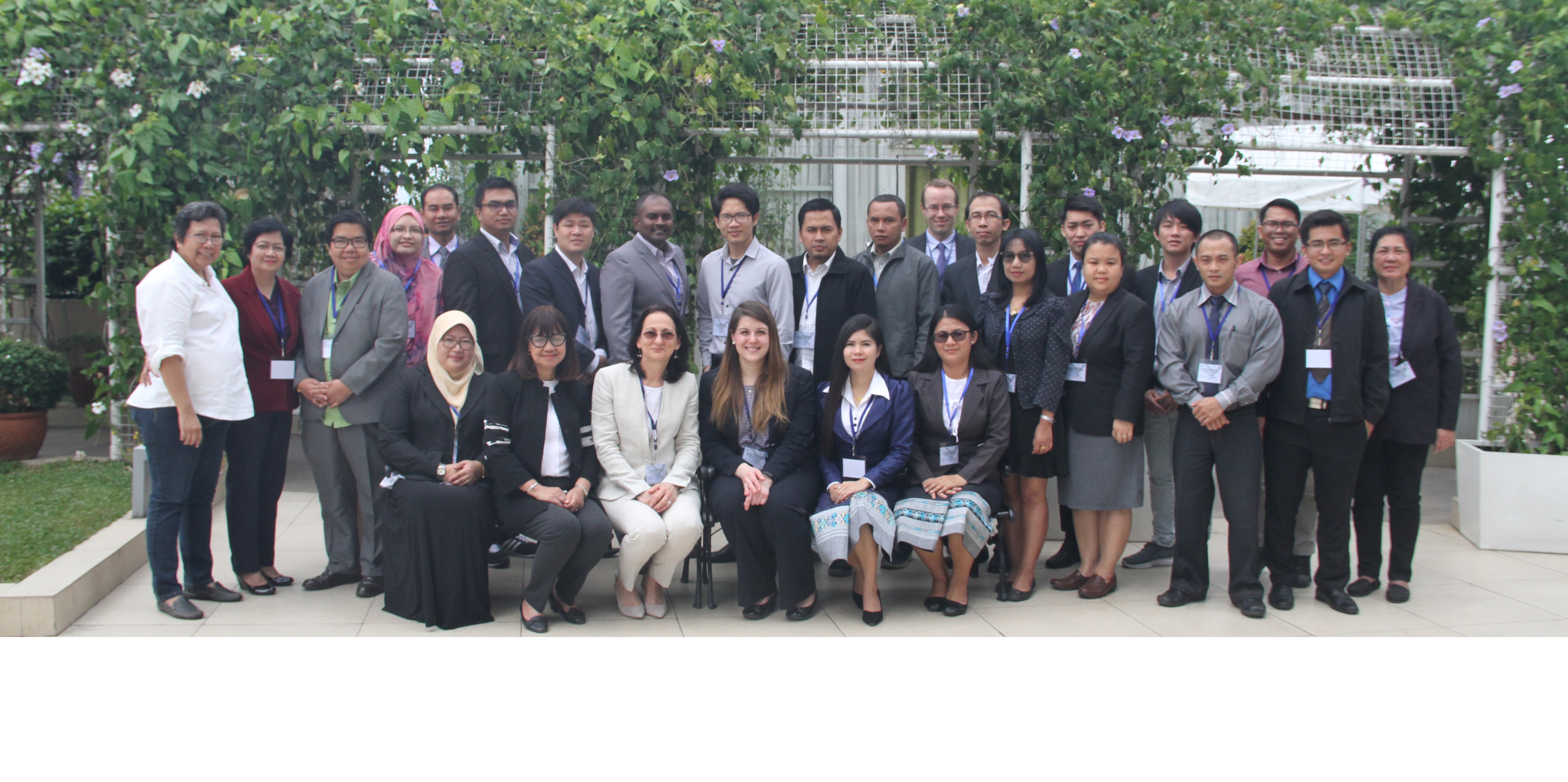
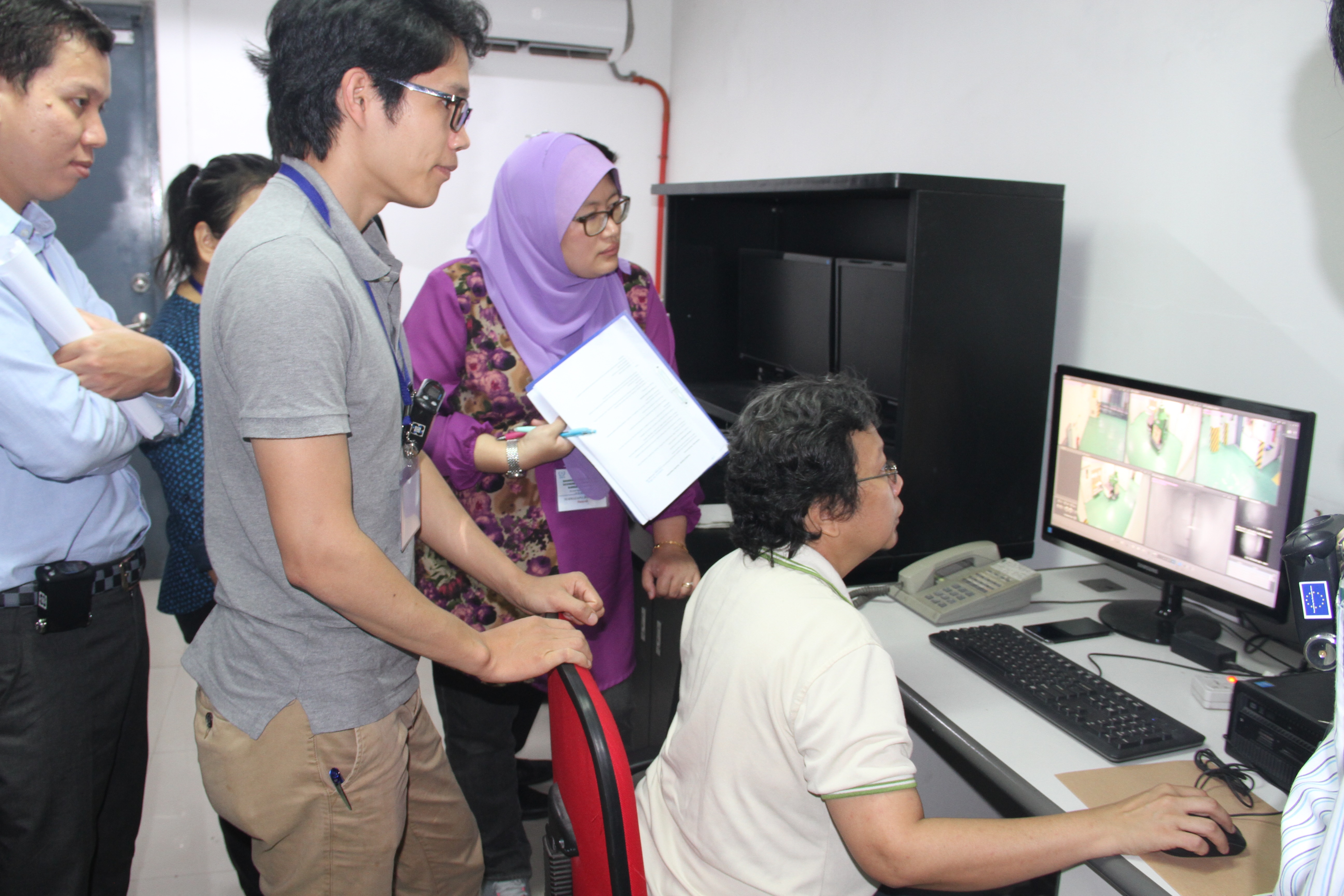
Regulators from Southeast Asian countries participating in a security exercise at DOST-PNRI
Southeast Asian Regulators Train at PNRI on Licensing and Inspection for Radioactive Materials
To better enhance the safety and security of the general public and the environment in their respective countries, nuclear regulators across Southeast Asia trained in the Philippines under the International Atomic Energy Agency (IAEA) for inspection of radioactive materials early in April at the Department of Science and Technology – Philippine Nuclear Research Institute (DOST-PNRI).
The week-long Regional Training Course on Licensing and Inspection for Radioactive Material, held from April 9 to 13, 2018 at the Novotel Manila Araneta Center, Quezon City, tackled the vital aspects of a security inspection program for nuclear and radioactive materials and facilities.
IAEA experts conducted the course with 23 participants representing various government agencies in Brunei, Cambodia, Indonesia, Laos, Malaysia, Myanmar, Singapore, Thailand and Vietnam, along with four participants from PNRI.
During the training course, a new IAEA project for strengthening regulatory capacities in Southeast Asia through improving licensing, inspection and enforcement of security for radioactive materials and associated facilities was introduced.
The PNRI serves as the country’s regulatory body for nuclear and radioactive materials. Under Republic Act 5027 or the Atomic Energy Regulatory and Liability Act of 1968, no person can use, own, possess or transport nuclear and radioactive materials without a license from the former Philippine Atomic Energy Commission, which later became the PNRI.
The Philippines became a member state of the IAEA in 1958.
Philippines Hosts IAEA Mission to Inform High-Level Officials on Nuclear Law
- Details
(1st row) Representatives Virgilio Lacson, Alberto Ungab and Erico Aristotle Aumentado (2nd, 3rd and 5th from left) and DOST-PNRI Director Dr. Carlo Arcilla (extreme left) with IAEA experts and officials from various government agencies during the opening ceremonies of the National Workshop to Inform High-Level Officials About Nuclear Law at the Xenia Hotel, Clark Freeport, Pampanga on February 27, 2018.
Philippines Hosts IAEA Mission to Inform High-Level Officials on Nuclear Law
To help strengthen its national nuclear legislative and regulatory framework, the Philippines hosted an International Atomic Energy Agency (IAEA) Awareness and Legislative Assistance Mission composed of technical experts in legal matters as well as nuclear safety and regulations, and the National Workshop to Inform High-Level Officials About Nuclear Law from February 26 to March 2, 2018 at Clark Freeport in Pampanga.
The mission was conducted through the efforts of the Department of Science and Technology – Philippine Nuclear Research Institute (DOST-PNRI) and the Department of Energy (DOE) as part of the IAEA Project RAS0071 on “Providing Legislative Assistance on Establishing and Upgrading the Legal Framework for Safe, Secure and Peaceful Use of Nuclear Energy.”
Legislators from the House of Representatives were joined by Science Secretary Fortunato De La Peña along with officials from DOST, DOE and other government agencies during the four-day event.
As the Philippine government goes through the decision process in coming up with a national policy on a nuclear power program, the mission and workshop discussions revolve around the establishment of a comprehensive legislation for the Philippines consistent with international standards on nuclear safety and security.
These intend to cover various aspects of regulating nuclear facilities such as authorization, inspection and enforcement of regulations, safety and physical protection in nuclear installations, spent fuel and radioactive waste management, emergency preparedness and response, transportation of nuclear materials, and civil liability for damages involving nuclear and radioactive materials.
The bill for the Comprehensive Nuclear Regulation Act is currently making progress in both houses of Congress. At the House of Representatives, the bill is sponsored by 30 co-authors in a consolidated substitute bill approved at a joint meeting of the House Committees on Science and Technology and Government Reorganization in November last year.
Meanwhile, a counterpart bill for the Comprehensive Nuclear Regulations Act is currently filed in the Senate by Senator Vicente Sotto III, who was the guest of honor during the IAEA mission.
Upon its enactment into law, the Comprehensive Nuclear Regulation Act will provide for the establishment of an independent nuclear regulatory body, the Philippine Nuclear Regulatory Commission, which will succeed the DOST-PNRI in its mandate to regulate the safe and peaceful uses of nuclear and radioactive materials in the country.















